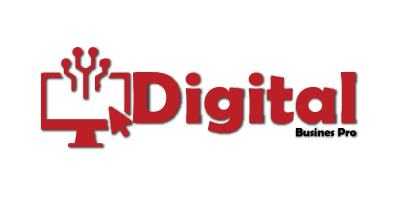By Business Insider Contributor
In Business insider an age where health, wellness, and sustainability are front and center, the once-humble water filter has evolved from a kitchen accessory into a household essential. As concerns around tap water safety, environmental waste from bottled water, and long-term health grow, more consumers are turning to water filtration systems—and the industry is responding with innovation, style, and efficiency.
The Water Filter Market Is Booming
According to market research, the global water purifier market is expected to surpass $80 billion by 2030, growing at a compound annual growth rate (CAGR) of over 8%. North Business insider America and Asia-Pacific lead the charge, driven by urbanization, increased pollution, and growing awareness of waterborne diseases.
But it’s not just health. Sustainability is pushing water filters to the forefront of home upgrades. With plastic pollution surging and climate change affecting freshwater Business insider availability, many consumers are ditching bottled water in favor of filtered alternatives. And companies are taking note.
From Basic Pitchers to High-Tech Systems
Once, water filters were synonymous with basic pitchers and faucet attachments. Now, the category includes a wide range of products:
- Reverse osmosis systems capable of removing up to 99% of contaminants.
- Smart filters that monitor usage and send alerts Business insider when it’s time to change cartridges.
- Under-sink and whole-house systems that integrate seamlessly into modern home design.
Brands like Brita, Berkey, and Aquasana have long dominated the space, but new entrants like LARQ and Hydroviv are targeting tech-savvy millennials with sleek designs and app connectivity.
Health and Safety Drive Demand
While the U.S. has relatively safe drinking water by Business insider global standards, high-profile incidents like the Flint water crisis have damaged public trust. A 2022 Gallup poll showed that 57% of Americans worry “a great deal” about the pollution of drinking water.
Heavy metals, chlorine, PFAS (per- and polyfluoroalkyl substances), and microplastics are now commonly cited reasons why households choose filtration systems. Many consumers are also seeking filtration options that preserve beneficial minerals while removing harmful Business insider contaminants—a delicate balance that newer systems are now able to achieve with multiple filter stages.
A Sustainability Upgrade
According to Statista, Americans consumed over 15 billion gallons of bottled water in 2023 alone. That equates to billions of plastic bottles, many of which end up in landfills or oceans. Water filters offer a simple yet effective alternative.
Households that switch to filtered tap water can save hundreds of dollars a year and significantly reduce their carbon footprint. Companies like ZeroWater even Business insider promote zero-waste recycling programs for used filters, a trend expected to grow as environmental consciousness becomes a greater purchasing factor.
The Tech Twist: Smart Water Filtration
Smart home integration has hit the water industry. Products like Moen’s Flo Smart Water Monitor or Pur’s Bluetooth-enabled pitchers give users real-time data on water usage, filter lifespan, and even water quality reports.
Some systems, particularly reverse osmosis units, Business insider now offer Wi-Fi connectivity, leak detection, and automatic shut-off features—blurring the line between utility and tech gadget.
Challenges and Consumer Education
Despite growing interest, adoption isn’t without friction. Many consumers still don’t know what type of water filter they need. Is a carbon filter enough? Do you need reverse osmosis? Should you test your tap water first?
There’s also the cost factor. High-end systems can cost $300 to $1,000 upfront, with ongoing filter replacements adding to the total cost of ownership. But as consumer education improves—and as health and climate concerns persist—these barriers are becoming less significant.
The Business Opportunity
For entrepreneurs and investors, water filtration represents a rare convergence of necessity, sustainability, and scalability. Startups are tapping into niche demands, such as travel-friendly filters, alkaline-enhancing models, and products tailored for renters and apartment dwellers.
Subscription models for filter replacements, water quality testing services, and eco-conscious packaging are creating recurring revenue opportunities. Even hospitality and co-working spaces are adopting premium filtration systems to meet the expectations of health-conscious clients.
The Bottom Line
Water is life, but clean water is now a luxury many are willing to pay for. As environmental concerns mount and consumers prioritize health more than ever, the demand for home water filtration will only intensify. What began as a kitchen convenience has grown into a movement—one that blends technology, sustainability, and wellness.
For households, it’s a smart upgrade. For businesses, it’s a booming market. And for the planet, it’s a step toward a more sustainable future.
Word Count: ~790 words
Let me know if you’d like to tailor this more for SEO, turn it into a guest post for your site, or add product mentions/affiliate angles!



